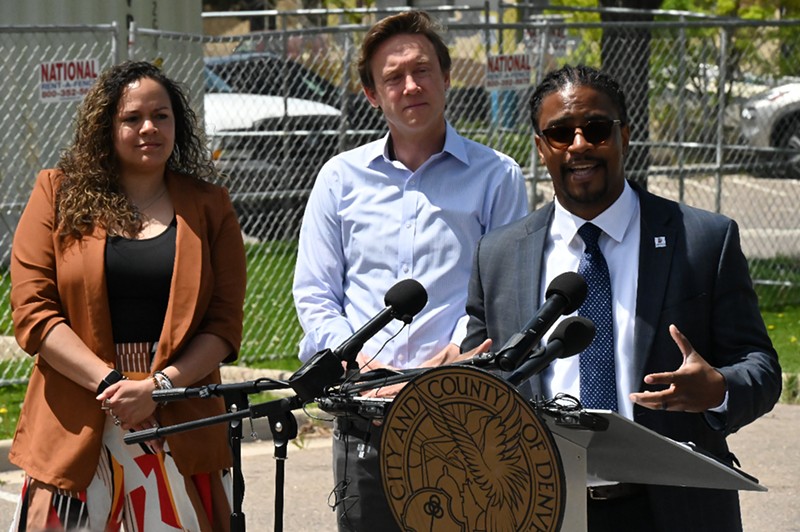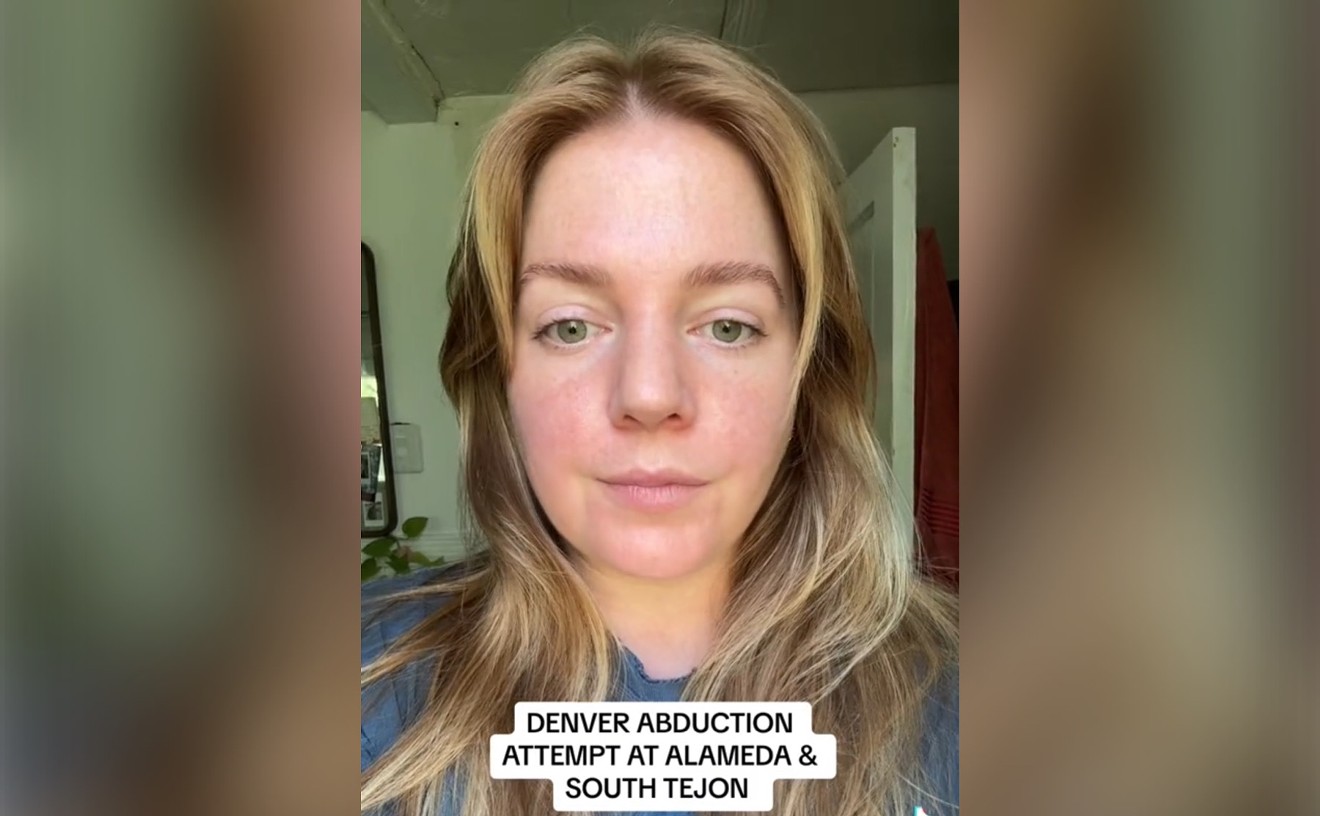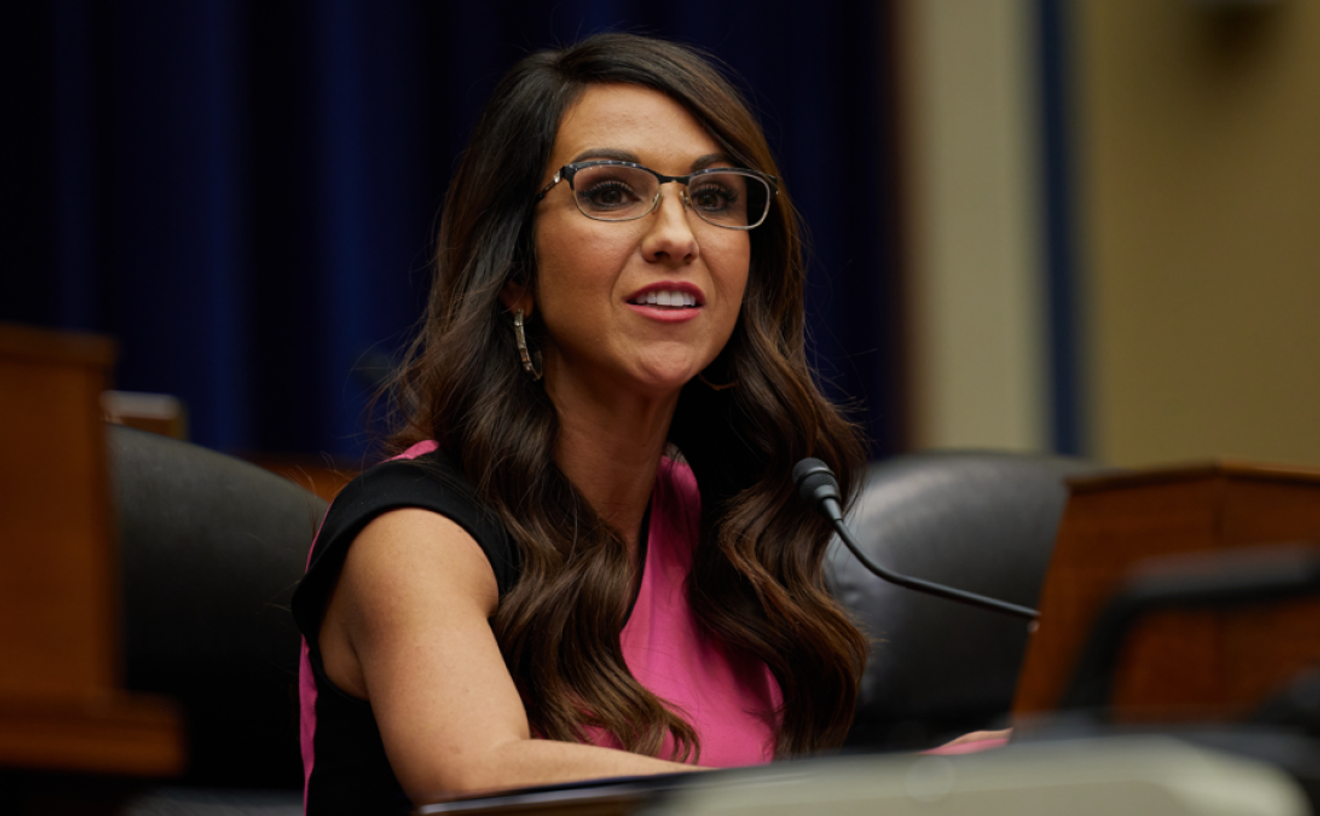"Public safety is a project for all of us. It's not something you just do with a badge and gun. It's not something we just rely on our law enforcement to do," Johnston said. "It is something that we as a community do together."
To create the new office, the mayor transferred $11 million and 65 full-time employees from the Department of Public Safety — which includes the police, fire and sheriff departments — and into the Mayor's Office of Social Equity and Innovation, which former mayor Michael Hancock created in 2019. This transfer will have zero impact on the Department of Public Safety budget, Johnston said, even though Public Safety is also losing $15 million from its hiring budget to afford the city's new migrant plan.
"What that will do is that will bring together all the operations in the city that help support all the ways which we can keep communities safe that don't involve law enforcement," Johnston added. "For many years, these programs have run, and run effectively, under the office of Safety and the Manager of Safety."
Johnston made the announcement at the Boys & Girls Club of Metro Denver, near his old legislative offices by the Holly, a retail development that burned down in 2008 because of a gang dispute, he recalled.
Lisa Calderón, who ran against Johnston for mayor last year and is now one his loudest critics, says that Johnston is "co-opting" a community initiative by the Denver Task Force to Reimagine Policing and Public Safety by creating the new office and "depleting our funding opportunities," she charged in a press release.
Johnston responded to the criticism by saying that the task of this new office, making public safety more equitable, "requires central city-based leadership."
"We need to have a city agency that leads and oversees it and coordinates efforts both inside the city and outside," he said. "We're obviously open to partnering with anyone in the community that wants to work on this."
Ben Sanders, the city's chief equity officer, will head the effort. With the transfer of $11 million and 65 employees to his office, he says that the job will be matching communities and neighborhoods with the resources with a new "equity lens" applied to every decision. More details about how the office will work are still being hammered out, he adds.
"We now have the resources to match folks strategically across the city, to all city council districts, to really take local pictures of what neighborhoods need to really supervise some of the city-community collaboration," Sanders tells Westword. "How exactly that's going to happen, I don't want to over-speak, because it's important that these folks have a twelve-week integration process."
Daelene Mix, a fifteen-year employee of the Department of Public Safety, will be the deputy director of the new office. She says that the next eight to twelve weeks will be focused on getting the office up and running by looking over community feedback that the mayor's office has already collected, sitting down with other agencies to talk about how this new agency will work with them and picking city issues to look at more broadly.
"Initially, [the city] is going to look very much the same. We're not trying to disrupt the environment. We're trying to understand all the different operations. Really, it'll just be digging in first and evaluating the current state," Mix says. "It's not going to modify the work, but the conversations that we have may be approached a bit differently."
Staffers from the Office of Community Violence Solutions will be joining the new neighborhood safety office; Mix says it could be an advantage to keep them fanned out across Denver, as is the current setup. "They're very out in the community. That's where they can make the most difference," she says. "From that perspective, the day-to-day doesn't change. We're still going to be working with those who are at risk."
The new office will decide how it might need to make changes to programs focused on youth violence, people who are at risk of homelessness or being affected by crime, violent crime and drug intervention, and prevention and safety at Denver Public Schools, Mix says. It will also look at how those programs can be more equitable and impactful for the people who use them, she adds.
The kind of employees who will join the program include program managers; program administrators; case managers; dispatch operators; an operation manager from STAR; deputy directors, including one from the A.I.D. Center, a city-run diversion program to keep people out of jail; and a mental health service provider.
Even as Johnston is unveiling this program, he's carrying out a series of citywide town hall meetings called Community Conversations, where neighbors have complained about public lighting, violence and homelessness. Mix says that the feedback coming from these meetings is playing into how this new office is setting up "quite a bit."
Sanders, who has been moderating each Community Conversation, says the new office "has been...living at the front of my head" during each town hall.
The new office has been in the works for a while, Mix says; it prdates Johnston's administration, but it never got off the ground under Hancock.
Herman White, board president of the Park Hill Pirates and a member of the Northeast Park Hill coalition, says he believes the mayor's new office will boost his community. He feels "a sense of gratitude" and that "the right administration is in place that is hearing the community's voice and actually taking action," he adds.
"I'm excited because the leadership that was presented to us today has been in the community and fulfilling a need in the community for decades now," he says. "Knowing their hearts, knowing their intentions and knowing that they are confident in getting the job done gives us all a sense of encouragement."












